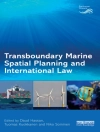Carbon capture and storage (CCS) is a quickly evolving next generation technology which mitigates climate change by capturing and storing carbon dioxide (CO2) before it is released into the atmosphere. CCS technology reduces carbon emissions so plays an essential role in meeting global and regional temperature targets. This Special Report explores the most recent regulatory, political and economic trends and themes arising from CCS technologies and projects.
This Special Report will give readers a firm grasp of the political and regulatory landscape for CCS technologies and projects from both a legal and business perspective. Key sections of the report include:
•Overview on CCS technologies, technical advances and challenges
•Economics of CCS technologies and projects
•Public funding frameworks and programs
•CCS strategies and model projects
•International and national regulatory frameworks.
Pilot CCS projects are successfully proliferating and this Special Report provides the regulatory and political insights to succeed in the rapidly changing CCS market. It will be an invaluable resource for in-house counsel, senior managers, engineers, consultants, researchers and policy makers with an interest in the energy sector and CCS technologies and projects.
Table des matières
I. Introduction
II. Technical aspects and challenges 9
1. Separation and capture 9
1.1 Pre-combustion 9
1.2 Post-combustion 10
1.3 Oxy-fuel 11
1.4 Direct air capture 11
2. Transport 12
3. Storage 12
3.1 Storage environments 12
3.2 Storage capacities 14
3.3 Monitoring 14
4. Usage 15
III. Economical practicability 17
1. Economic costs 17
1.1 Capture costs 17
1.2 Transport and storage costs 18
1.3 Emissions trading: the EU ETS 21
1.4 Looking beyond current (first-in-kind) costs 23
2. Public funding and economic incentives 23
2.1 EU public funding 23
2.2 Other public funding/national incentives 25
3. CCUS project financing and bankability 26
4. CCUS risk profile and insurability 27
IV. Networks and initiatives 29
1. International level 29
2. European level 31
V. CCS projects and national strategies 35
1. Norway 35
1.1 Sleipner and Snøhvit projects 36
1.2 Northern Light Project 37
2. United Kingdom 37
2.1 Net Zero Teesside 38
2.2 Acorn Project 38
2.3 Caledonia Clean Energy Project 39
2.4 Zero Carbon Humber Project 39
3. Netherlands 39
3.1 Porthos Project 40
3.2 Athos Project 40
4. United States 40
4.1 Petra Nova 41
4.2 Illinois Industrial CCS Project 43
5. Canada 43
5.1 Boundary Dam CCS 43
5.2 Quest 43
VI. Sources of law 45
1. International law 45
1.1 London Protocol 46
1.2 OSPAR Convention 47
2. EU law 48
2.1 Carbon Storage Directive 48
2.2 Other EU law 51
3. National laws 51
VII. Regulatory framework 53
1. Storage 54
1.1 Siting 54
1.2 Construction and operation 56
1.3 Closure and operator’s liability 59
2. Separation, capture and transport 64
VIII. Conclusion 65
Notes 68
About the authors 77
About Globe Law and Business 79












